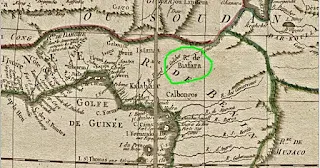The long history of why the British hate the Igbos and why the President Buhari is taken the Igbo cause very seriously and this are historical facts. There is very little doubt that the Igbo are a very robust group of Nigerians with their own sense of a strategic interest, and anyone who ignores the Igbo does so at really great risks, certainly President Buhari knows this too. The Igbo have proven precedence of action, once they choose to create synergy, and common cause. And their impact could be devastating. I will cite four historical examples.
Between 1895 and 1930, with British colonial forays into Africa late in the 19th century, the Igbo put up one of the toughest resistances against British colonization in Africa. While the Igbo fought, some of its neighbors fell in quick order.
For instance, in January 1903, twenty four British officers led a column of 700 African soldiers of the new West African Frontier Force, many of them Hausa, fresh from the Ashanti campaigns, and marched on Kano, and defeated it at the battle of Bebedji. The Emir of Kano, Aliyu, was in flight, while his brother, Muhammed Abbas was installed as a British puppet. Emir Aliyu was soon captured, exiled, and locked up in the British military garrison in Lokoja where he died in 1926. The British defeat and killing of Sultan Attahiru, and the Magajin of Keffi, among many in Burmi on July 27, 1903, marked the formal end of the Caliph’s resistance in Sokoto against the British.
Southwards, exhausted by internal rife and the hundred-year civil war following the collapse of Oyo, the Yoruba historian Johnson wrote that it was the Yoruba Obas themselves who wrote and invited the British to come and colonize Yoruba land. Oba Ovoranwen of Benin was quickly defeated by the British and exiled to Calabar, where he too died in exile. But the British fought the Igbo for thirty years, in five campaigns from 1900to 1930, until the British forced the High Priest, Eze Nri Obalike, to appear at the Awka Courts in 1930. Historians like Don Ohadike have written eloquently about the Ekumeku movement and the Igbo use of guerrilla warfare against the British.
Meanwhile, the previous year in 1929, Igbo women had driven away the colonial warrant chiefs, imposed on the Igbo by the British. All that prompted, in an attempted to understand the Igbo, the British government under the Colonial Governor-Genera
By the 1930s, following their work as technicians, tradesmen, mid-level clerks in commercial and government jobs, and artisans helping to lay the North-South Rail lines, the Igbo, had fanned across and settled in what is now modern Nigeria.
From 1937-1957 they had enough national density to mobilize and rally round Dr. Azikiwe, and were the arrowheads in the anti-colonial nationalist movement that forced the British colonialists out of Nigeria. By 1967, finding Nigeria no longer suitable for their collective interest and protection, they staged an exit and declared their own state of Biafra. The Igbo remain the only one of the major groups in Nigeria to mobilize an army, create an independent state, and fight in defence of their interests; and they have the capacity to do so again if they feel themselves, and their collective interests threatened. For three years, they fought, and in 1970, exhausted and surrounded, they agreed to a negotiated end, and returned to Nigeria.
But I do know that they did not feel themselves defeated, as elements of the S Brigade under Tim Onwuatuegwu, among whom my uncle, now a Professor of Geophysics, had been trained and prepared to activate the guerilla phase of the war nation-wide should there be need to defend the Igbo in 1970. Nigerians should thank General Gowon, and the late MD Yusuf, who made it part of his policy, to absorb key members of the Biafran Organization of Freedom Fighters, into the Nigerian Intelligence Services to tamp down that possibility.
The Nigerian government knew that the Igbo were the only part of Nigeria that had highly trained combatants with field experience who had circulated into civilian life as traders, artisans, students, university professors, civil servants, teachers, and other professionals, and you do not mess with people like that. Nigeria gave the Igbo their due up till the middle of the 1980s. I have outlined these simply to suggest that President Buhari, himself a combatant of the last war, knows the Igbo, and that he would not take Igbo fight for granted...


